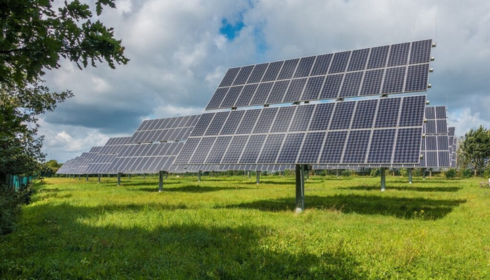In recent years, the demand for renewable energy solutions has grown exponentially. Among these solutions, a solar power system stands out as an eco-friendly and cost-effective choice. With rising electricity costs and increasing environmental awareness, more homeowners and businesses are turning to solar energy to meet their power needs efficiently.
A solar power system converts sunlight into electricity using photovoltaic (PV) panels. These panels capture sunlight and transform it into direct current (DC) electricity, which is then converted into alternating current (AC) through an inverter. AC electricity is the type used to power homes, offices, and industrial applications. This simple yet effective technology allows users to harness natural energy while reducing dependence on conventional electricity sources.
Benefits of a Solar Rooftop System
Installing a solar rooftop system has become increasingly popular, especially in urban areas where roof space is abundant. Rooftop solar systems offer several advantages:
- Cost Savings: By generating your own electricity, you can significantly reduce monthly electricity bills. In many cases, surplus energy generated can be fed back into the grid, earning credits or monetary compensation under net metering schemes.
- Environmentally Friendly: Solar energy is clean and renewable. Unlike fossil fuels, it does not release harmful emissions, thereby reducing your carbon footprint and contributing to a healthier environment.
- Energy Independence: With a rooftop solar system, homeowners and businesses can become less reliant on grid electricity. This independence can be particularly valuable during power outages or energy crises.
- Increased Property Value: Properties equipped with solar systems are increasingly viewed as modern and sustainable, often leading to higher market value and appeal to environmentally conscious buyers.
- Low Maintenance: Solar panels require minimal maintenance. Regular cleaning and periodic inspection are sufficient to ensure optimal performance for decades.
How to Choose the Right Solar Power System
Selecting the right solar power system involves evaluating energy needs, roof structure, budget, and long-term goals. Here are a few key considerations:
- Energy Requirements: Determine your daily electricity consumption to size the system correctly. A system that is too small may not meet your energy needs, while an oversized system can increase costs unnecessarily.
- Roof Orientation and Space: South-facing roofs typically receive maximum sunlight, making them ideal for solar panels. Ensure there is adequate space to install the number of panels needed for your desired capacity.
- Inverter Quality: The inverter is a crucial component that converts DC electricity to AC. Investing in a high-quality inverter ensures efficiency and longevity.
- Government Incentives: Many regions offer subsidies, tax benefits, or net metering policies to encourage solar adoption. Researching these options can make the investment more affordable.
Future of Solar Energy
The solar industry continues to evolve, with technological advancements making systems more efficient and affordable. Innovations such as battery storage, smart inverters, and energy management software are enhancing the functionality of solar power systems. Battery storage allows users to store excess energy for use during nighttime or cloudy days, further increasing energy independence.
As the world moves towards sustainable energy solutions, solar rooftop systems are set to play a pivotal role in reducing reliance on non-renewable sources. They not only provide financial savings but also contribute to a cleaner, greener planet.
Conclusion
Adopting a solar rooftop system or a solar rooftop system is a forward-thinking choice for homeowners and businesses alike. It combines economic benefits with environmental responsibility, offering a sustainable energy solution that meets today’s power demands while preserving resources for the future. With the right planning and installation, a solar system can serve as a long-term investment, providing energy security, cost savings, and environmental benefits for decades to come.

